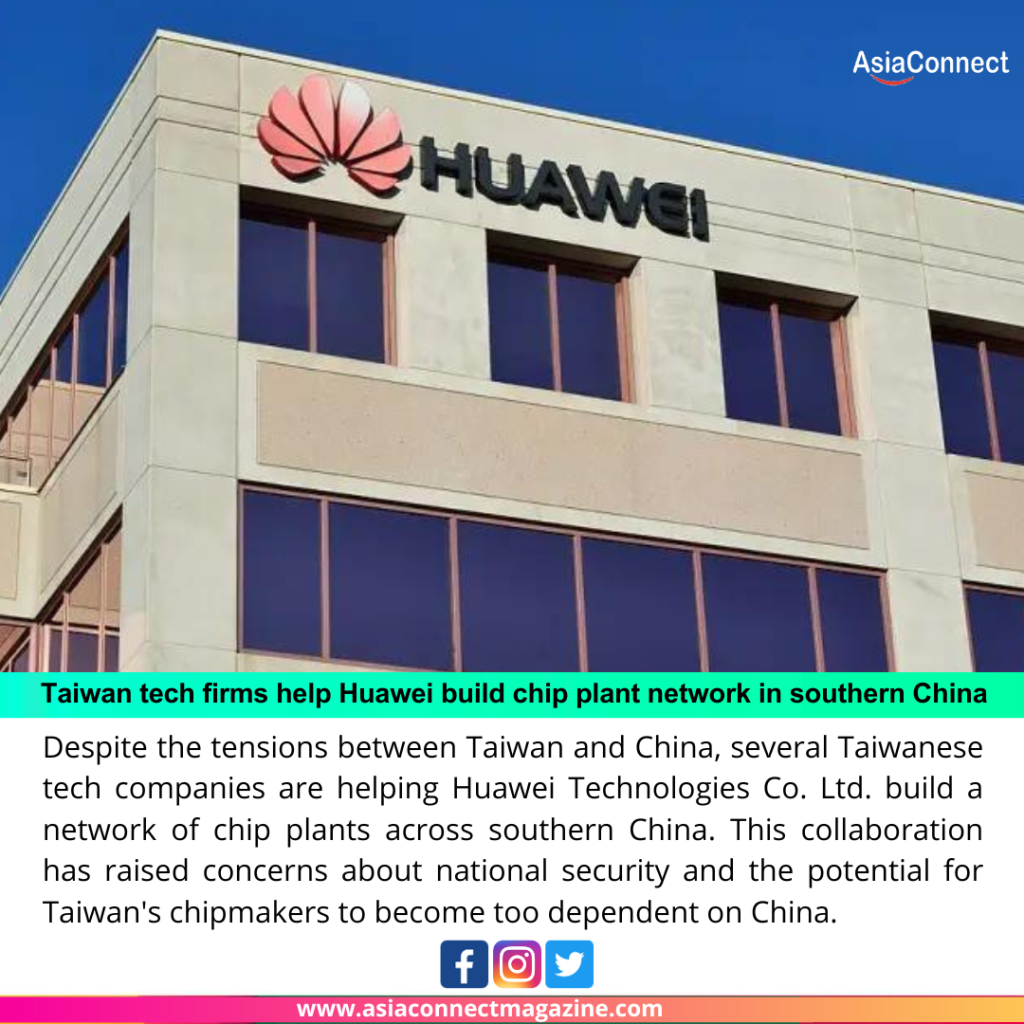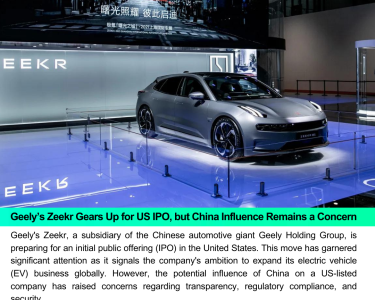
Taiwan tech firms help Huawei build chip plant network in southern China
Despite the tensions between Taiwan and China, several Taiwanese tech companies are helping Huawei Technologies Co. Ltd. build a network of chip plants across southern China. This collaboration has raised concerns about national security and the potential for Taiwan’s chipmakers to become too dependent on China.
The Taiwanese companies involved in the project include chip material reseller Topco Scientific Co. Ltd. and a subsidiary of L&K Engineering Co. Ltd. These companies are providing Huawei with essential equipment and materials for its chip plants.
Huawei is building its own chip plants in an effort to reduce its reliance on foreign suppliers, such as Taiwan Semiconductor Manufacturing Co. Ltd. (TSMC). TSMC is the world’s largest chipmaker, and it supplies Huawei with a significant portion of its chips.
The US government has imposed sanctions on Huawei, which has made it difficult for the company to obtain chips from foreign suppliers. Huawei’s own chip plants would allow the company to produce chips without having to rely on foreign suppliers.
Concerns about national security and economic dependence
The involvement of Taiwanese companies in Huawei’s chip plant project has raised concerns about national security. Some experts worry that China could use the chip plants to produce military chips. Others worry that the Taiwanese companies could become too dependent on China, which could make them vulnerable to Chinese pressure.
The Taiwanese government has said that it is aware of the concerns about Huawei’s chip plant project. However, the government has not taken any steps to prevent Taiwanese companies from participating in the project.
Some Taiwanese lawmakers have called on the government to take action to prevent Taiwanese companies from helping Huawei build its chip plant network. However, the government has resisted these calls, arguing that it is important to maintain economic ties with China.
Benefits of the collaboration
There are also economic benefits to the collaboration between Taiwanese tech firms and Huawei. The Taiwanese companies involved in the project are likely to generate significant revenue from their work with Huawei.
The collaboration could also help to strengthen Taiwan’s chipmaking industry. By working with Huawei, Taiwanese chipmakers could gain access to new technology and markets.
Conclusion
The collaboration between Taiwanese tech firms and Huawei is a complex issue with no easy answers. There are legitimate concerns about national security and the potential for Taiwan’s chipmakers to become too dependent on China. However, there are also economic benefits to be considered.
It is too early to say what the long-term implications of the collaboration between Taiwanese tech firms and Huawei will be. However, it is clear that the project is a sign of the growing economic ties between Taiwan and China.
Additional thoughts
The collaboration between Taiwanese tech firms and Huawei is a significant development, given the tensions between Taiwan and China. It is also a sign of the growing importance of China’s semiconductor industry.
It is important to note that the Taiwanese companies involved in the project are not the only ones providing Huawei with essential equipment and materials for its chip plants. Huawei is also working with companies from other countries, such as the Netherlands and Japan.
It is also important to note that the US government is pressuring other countries to restrict their exports of chipmaking equipment and materials to China. This is likely to make it more difficult for Huawei to build its own chip plants.
Overall, the collaboration between Taiwanese tech firms and Huawei is a complex issue with no easy answers. It is important to weigh the potential risks and benefits of the collaboration carefully.




